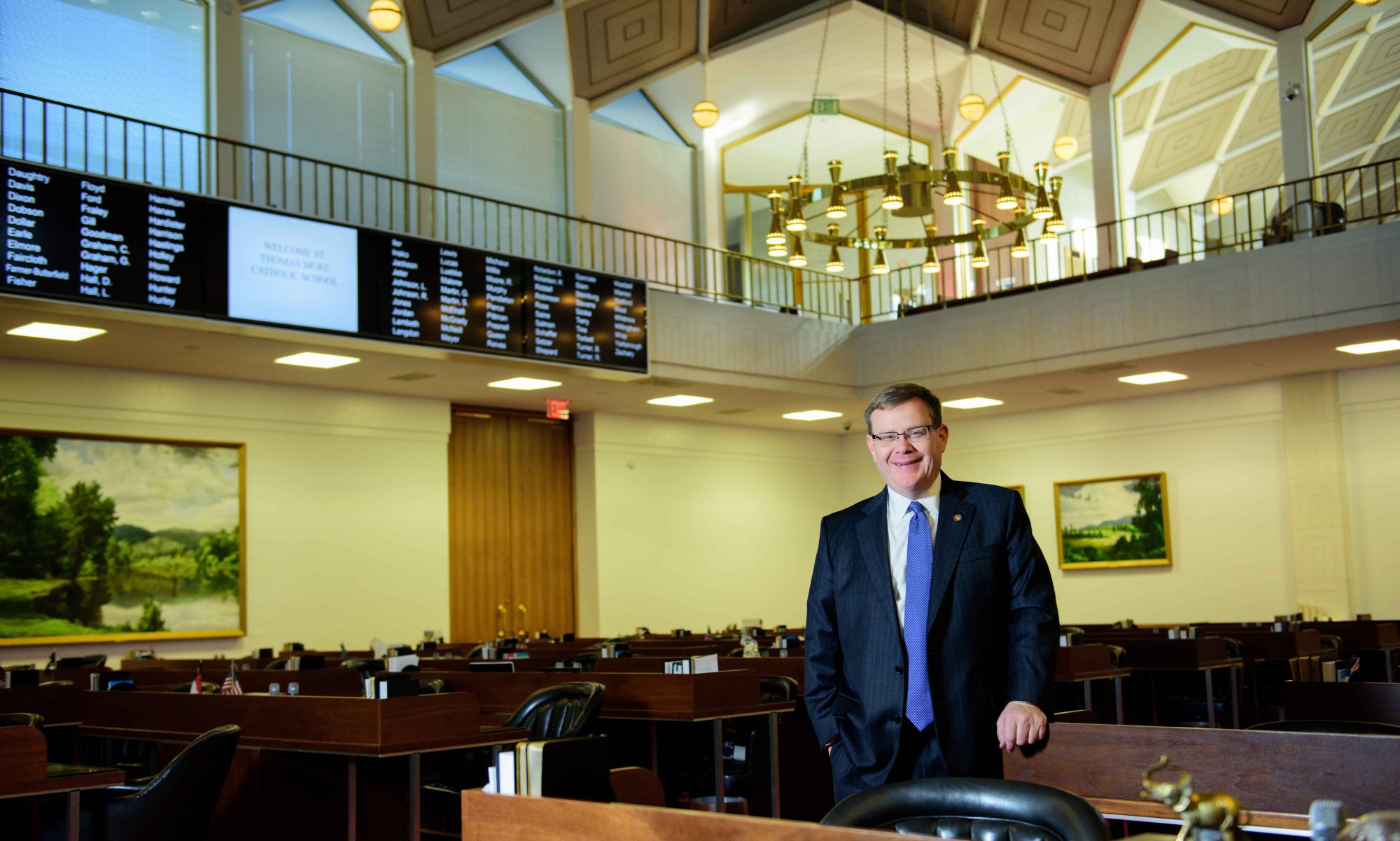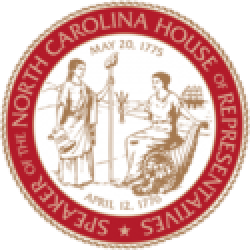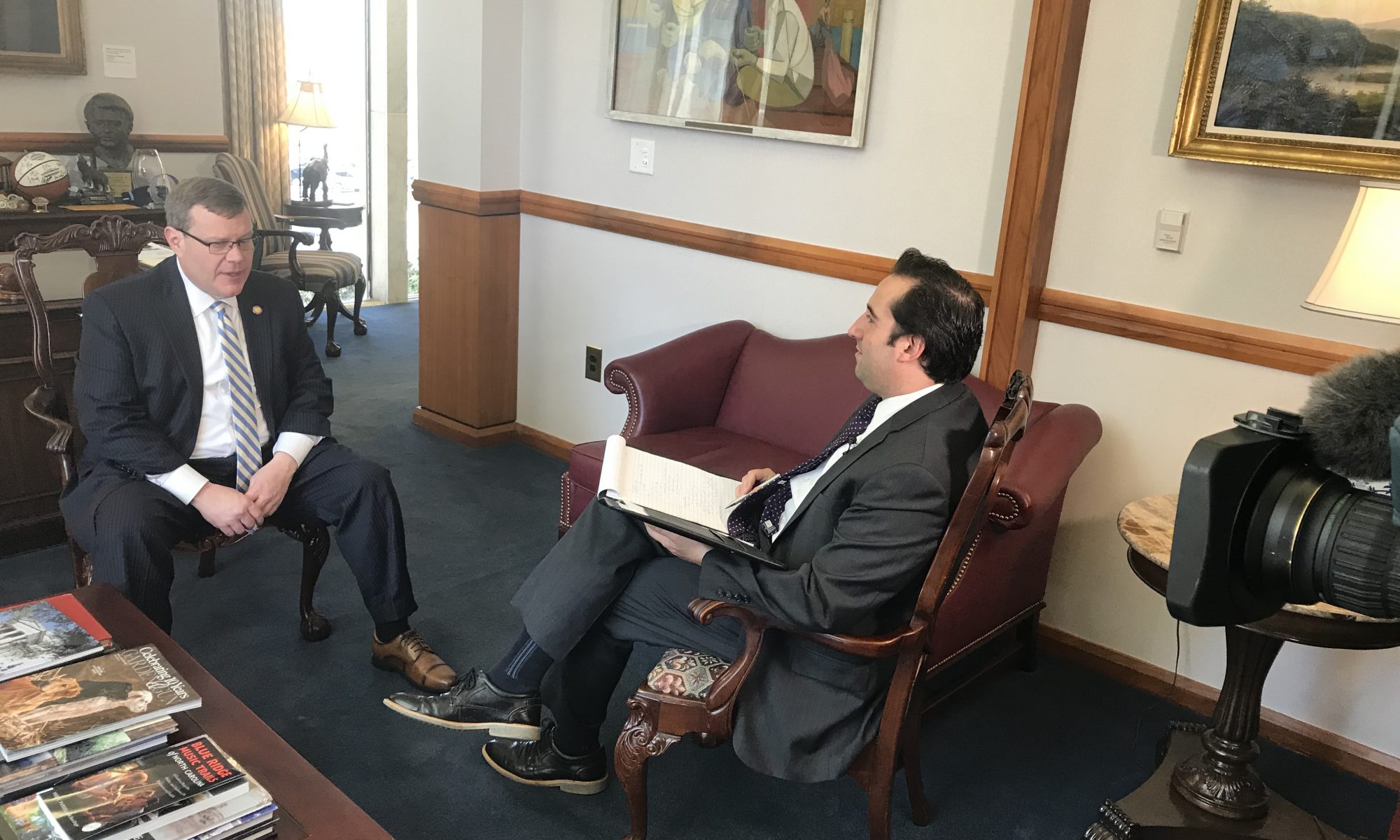Raleigh, N.C. – The Speaker of the North Carolina House of Representatives Tim Moore (R-Cleveland) sat down with reporter Jonah Kaplan of ABC-11 in Raleigh (WTVD) this week to discuss the state legislature’s upcoming session.
Among many topics Speaker Moore discussed hurricane recovery, state spending, a school construction bond, economic development, and the federal shutdown. His office released a full transcript of the interview:
Jonah Kaplan: Congratulations on being elected Speaker. This will be the longest tenured Republican Speaker of the House, ever? What does that mean to you?
Tim Moore: Certainly it’s an honor to serve as Speaker of the House, I really appreciate the opportunity to lead the house chamber—not only for the Republicans but also the Democrats who are there. Especially this year since we’ve had a change in the numbers to really work to try to build as much consensus as we can on the issues facing our state.
JK: One of the opportunities you have also is that because you are the speaker, even though you come to represent Cleveland County, you recognize your role as a speaker for every county. How do you balance that between representing Cleveland County and also being the Speaker of the House?
TM: You know, the issues that face my home county are the same issues that face particularly rural North Carolina. But because I spend a lot of time here in Raleigh, I understand the challenges facing the urban areas as well. One of the issues that I’m going to be working on a great deal this session will be a bond proposal for education, for school construction, all across the state—the rural and the urban areas. My belief is generally what’s good for any part of North Carolina is good for all of North Carolina.
JK: Lets talk about that because education, we know, has become a very hot-button issue. A lot of focus has been on teacher pay, right or wrong, that is where it has been. I know that teacher pay under your leadership has gone up every year—last year it went up five to six percent. I imagine when you look at education it’s a lot more than teacher pay.
TM: We’ve had five consecutive years of teacher pay (increases), we’ve also increased pay for other state employees around the state, which was badly needed. The thing that I’ve been hearing more and more is that we need to do something about school construction. Cleveland County is right on the state line with South Carolina and I can drive just a few miles to the south and see some of the brand new schools being built across the state line. When I saw a lot of that it really struck home that we need invest even more in school construction.
JK: Why is that important when people say “well it’s just a building?” What is it about the construction piece that you think benefits education and ultimately preparing the next generation of the workforce?
TM: We need adequate facilities for our students. There are some schools, particularly in the very poor, rural areas, where the heating and cooling systems are failing, plumbing and sewing systems are failing, and those counties do not have the money to be able to, on their own, build schools. So this is an opportunity to use the resources of the state to come in and do that. We can have great teachers, we can have great resources, but if we don’t have the best facilities available we are not doing our students a service.
JK: A lot of people talk about the divide between red and blue, but really—as in this state and throughout the country—it’s the divide between urban and rural. How does strengthening the rural parts of North Carolina help the urban parts of North Carolina?
TM: Well, of course, what’s good, in my opinion, is that what’s good for one end of the state is good for the other. I’ve traveled that state, you mentioned being Speaker for all the state, I’ve traveled the state from Manteo to Murphy and even points further than that and you see a big disparity, particularly in northeastern North Carolina where some of the downtowns are just boarded up from where agriculture and industry has left. We owe it to those citizens to make sure we are doing well we can—whether its through economic development, transportation, healthcare, or education—to invest in those communities.
The saying that the chain is only as strong as its weakest link, so these communities that have the greatest challenges require the greatest investment. If you look as utilizing those resources there, for example a lot of sewer and water infrastructure that is there, a lot of road infrastructure, if you could find ways to help industry locate there and grow where infrastructure exists, it saves having to come to an area that is already crowded where more infrastructure will have to be developed to support those industries.
JK: Right, one of the challenges for us, while our viewing area is Raleigh, Durham, Chapel Hill, Fayetteville, what is the benefit for these areas when people day “no we want the money here, we have more people here,” what is the ripple effect? If you’re investing in northeastern North Carolina and investing more money in those schools, how does that then translate into the whole state benefiting?
TM: Sure, in those areas if there is not industry coming there, if there is not investment, what do you have there? You have folks who are struggling. If you have folks who are struggling and can’t find jobs, they are going to need public assistance of some kind. That costs the state overall of you can provide jobs in these areas where there are already these challenges, then you actually solve two problems at once.
JK: The biggest item in the beginning of the biennium, this being my second full one here, is the budget. That is probably the top priority. Will the budget priorities match what has been under your leadership?
TM: You know, we want to continue building on a number of great budgets since we took the majority, we have now seen the taxes in this state the lowest they’ve been in decades, we have a record numbers of people working in this state, more people moving to North Carolina than any time before. That’s not an accident. That’s because the state is being run in a very fiscally responsible manner where we are making sure that we aren’t wasting money.
We’ve done a lot of that, we’ve done a lot of the big lists to try and get our state budget in order. What I think you’ll see now is to continue moving forward, particularly from my perspective with an eye in investing those funds that we’ve been able to save into education, transportation, access to health care, these are all critical needs. I think you’ll see us continue to build on those.
JK: So you will see more spending this year you think?
TM: You will see more spending because of the growth in population in North Carolina, there is growth in demand on a number of services, so there will be some increases in spending. It will be measured, it won’t be like in many years past see huge increases in spending. I think as long as we follow a model that makes sense, that we live within our means, that we don’t overspend we’ll be just fine.
JK: Do you expect to lower taxes again this year?
TM: The next round of tax cuts just kicked in this year. As far as determining if there is going to be another round of tax cuts, certainly if there is a way to do it I would like to, but we are just going to need to look and see where we are in terms of collects, and also making sure that our tax policy is making sense, that we are actually, as a state, seeing the benefit from that. What we’ve seen so far is with the taxes that we’ve cut, we have actually seen more new industry here. We want to make sure if we are doing those things that it actually pays off.
JK: One of the things that got bipartisan support recently was revamping, or I should say increasing, the JDIG program and significantly increasing the incentive for big companies to come here. A lot of speculation that it was directed at Apple, directed at Amazon, both of those tech giants ultimately choosing to go somewhere else. Do you take anything away from that? Do you learn anything from that? Where those incentives, do you think, not good enough or were we never in the running for these? What’s your take away from all of this?
TM: It’s hard to know what companies are going to do and whether we are still in the running or not for different things because there are expansions all the time and, of course, certain ones always get the headlines, but what never gets talked about are the huge numbers of small- and medium-sized businesses that are moving into this state every day. Those JDIG programs that we have actually help recruit that companies as well.
So while I want us to land the super large corporation and grab all the headlines, I think it’s important that our economic development strategy be something that is designed for those really large ones but also that we are getting these small and medium-sized business that really drives the state. If you look at the growth we’ve had the last few years, yes we’ve had large companies relocate, just like Honeywell headquarters moved to Charlotte. These are major Fortune 100 companies that are choosing to locate in our state and looking to expand. Not only those, but it’s the metal shop you don’t read about that is 40 new jobs—that’s 40 families that now have a job and have income.
There are all these things happening, so you need a holistic approach when it comes to economic development. Have something in place where you can compete with the state with that companies that are grabbing the headlines but make sure you have something in place that is dealing with the day to day small and medium-sized companies that are coming in.
JK: You mentioned consensus—that was a word that stuck out—and that is going to be important this year because you retained your majority, which is significant, but your power to override vetoes won’t be there anymore. What’s that going to be like working with Governor Cooper? It’s been kind of a back and forth over the past two years. A lot of court. Even before he took office, two laws trying to maybe redistribute some of the powers from the executive branch to the legislative branch. What is your relationship like with Governor Cooper?
TM: 95 percent of the legislation we pass is bipartisan, there is no veto, it gets signed into law, and we move forward. The things that are being noted where we do have difference with the governor, I do think it will be important to try to work out differences and build consensus on the front end as much as we can. The governor, just like I am, is elected by the people so we all collectively owe it to the people to try to sit down and solve problems. And I’m glad to do that.
JK: Are you confident that you will be able to work together well? I think people are looking at the national stage seeing a divided government shutdown right now. Could that happen here?
TM: Well, fortunately our state law is such that we don’t ever have to worry about a shutdown. If there is a failure to enact a budget, what happens is the preceding year’s simply budget carries on to the next year. At the state level no one has that weapon, or tool, or whatever you want to call. I, frankly, think that government shutdowns do not serve the interest of the people, the taxpayers, the citizens really expect the services that they are paying for. That is not something we have to worry about here.
As far as working with the governor, absolutely. We’ve worked very well with the governor, it’s just that when we are working together well it doesn’t seem to grab the headlines. When there is a dispute or disagreement that is what does. To that point, the economic development legislation we’ve passed, significant economic development legislation on a bipartisan basis, signed by the governor, and that would be exhibit a of great times we have already shown a willingness to work together.
JK: I’ll say with the HB2 compromise, you negotiated that with him as well.
TM: Yeah, that was worked out as well on a bipartisan measure and we moved on from there.
JK: The shutdown has affected a lot of federal employees we know in North Carolina. Is the state planning to do anything to help those employees? Does the state, in your opinion, have any responsibility to help them is they are not getting paid?
TM: Well, of course, those employees as I understand would have the ability to claim unemployment benefits under state law, as any other resident of North Carolina. If they do, they have those resources there. Actually, if you go to the website there is a post on there that talks about if folks are affected by the shutdown how they can apply for unemployment.
JK: In what ways does the state feel the impact, are you, as one of the leading lawmakers, getting nervous about this dragging on in Washington?
TM: So far the impact to the state has been very minimal. But clearly the longer this goes on, the greater the impact to the state.
JK: So what concerns you the most about if this goes on three, four, five, six weeks, where in the state are you most concerned about?
TM: Of course, any of the various agencies that are here—HHS, EPA, our national parks—we want to make sure that the services that need to be provided to the citizens are there. So if there is an issue I feel confident the state will step in to make sure services are provided, but there are some things so unique to the federal government that we don’t have any control over.
JK: Right, right. Last thing I want to talk about is Hurricane Florence and the hurricane recovery. The governor has used words like “resiliency” a lot. The investments, moving forward, you’ve already committed a lot of money, that rainy day fund, which I know has been incredibly significant and worthwhile to the state, is there more to be done when it comes to hurricane recovery, or resilience as the governor calls it?
TM: Fortunately in our budgeting we had a record amount of savings and reserve in the rainy day fund. So that when these disasters hit, these two hurricanes two years in a row came in and created all this devastation we didn’t have to go and raise taxes or so anything else. We had the money sitting there to be able to step in to supplement the federal money that was coming in as well. The only complaint that I’ve had and been hearing is the time of which some of those recovery services are being provided to folks. If you look at the areas that were hit, some of those most economically challenged areas in our state, some of the rural areas that were already dealing with high unemployment rates and losing industry, it was a double shot for these guys.
We are committed to making sure the resources are provided. I’ve had the opportunity to travel around the state numerous times to see first-hand the disaster and talk to the folks in the communities, to talk to our legislators there, to see the hard work that is going on in those communities to rebuild those. We are very much a resilient state, and in those areas, those folks are very resilient and working hard and I’d say anything we can do at the state legislature to help—just like we’ve done with the amounts of money we have appropriated—that we’ll be there to help.
JK: Do you plan on any more appropriations?
TM: They haven’t spent the money that we have appropriated, so if those funds are used and need more then I would say we would be glad to step in and do it. Right now, there is enough money there. The question now is no the money that has been appropriated, it’s the speed by which those funds are being translated into actually providing construction, rebuilding, recovery all these things that need to happen in these communities.
###


